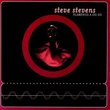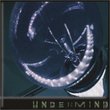| All Artists: Cage, Carter, Levine, Cso Title: Atlas Eclipticalis / Variations Members Wishing: 1 Total Copies: 0 Label: Polygram Records Release Date: 5/10/1994 Genre: Classical Styles: Historical Periods, Modern, 20th, & 21st Century Number of Discs: 1 SwapaCD Credits: 1 UPC: 028943169820 |
Search - Cage, Carter, Levine :: Atlas Eclipticalis / Variations
 | Cage, Carter, Levine Atlas Eclipticalis / Variations Genre: Classical The works on this fantastic disc are about as postmodern as you can get. These are the guys who either created movements or left them in their wake, and Maestro James Levine does a heroic job in making everything lucid. ... more » |
CD DetailsSynopsis
Amazon.com The works on this fantastic disc are about as postmodern as you can get. These are the guys who either created movements or left them in their wake, and Maestro James Levine does a heroic job in making everything lucid. Carter's Variations for Orchestra (1956) has flirtations with tonality hinting at Roy Harris, of all people. The Gunther Schuller Spectra (1958) is more garrulous, more typical of today's group of young Scandinavian composers. The Babbitt is for string orchestra and synthesized tape, a one-of-a-kind 1967 composition that revels in its own peculiarity. The Cage is a quiet, giddy gem. --Paul Cook Similar CDs
|
CD ReviewsOutstanding Recording! Eric | Brussels, Belgium | 06/14/2002 (5 out of 5 stars) "The Carter, Cage, Babbitt and Schuller are spectacularly colorful and vivid. This is great music that deserves its place in the cannon. Each composer is well represneted here - superb recording!Especially of note here is the Carter Variations for Orchestra - A brilliant piece (terribly neglected!) wonderfully presented. Mr. Levine and DG are to be congratulated for making this music so easily available. Keep up the good work!" Too bad it's out of print.... D. Castillo | Boulder, CO | 05/03/2004 (5 out of 5 stars) "This is a really good CD! I owned a burned copy but liked the music so much I thought I would seek out the original. I would buy this disc solely for the last 6 minutes of the Variations for Orchestra. The CSO trombones really do a GREAT job in the soli that takes place in this section. They make a difficult part sound really easy. Other highlights from the Carter are: The Introduction and Theme, Variation III, and Variation VII. What I like best about this piece is that, even though it's an abstract musical language, Carter still makes emotion and drama the most important thing about the music. Listen to it a few times and you'll see what I mean. The Babbitt and Schuller also seem interesting, but I am not as familar with them so I will not comment. I agree with a previous reviewer about the inclusion of the John Cage piece. It's an aleatoric work so, since it will sound different at each performance, a recording really doesn't serve the music's purpose. There are several other pieces that would have been better to include here." An essential recording of four major - but hard to swallow - Discophage | France | 05/07/2007 (4 out of 5 stars) "Lest you think some of the comments that follow are just sneer, let me point out that I consider this one of the most important discs devoted to the "progressive" or "advanced" (e.g., except for Cage, serial) trend in American music in the second half of the 20th century (as opposed to a more traditional current represented by composers such as Harris, Piston, Schuman, Mennin, Rorem - and I am not quite sure where to fit in Sessions): because it is played by one of the top world orchestras, led by one of the top world conductors and published by one of the top world classical music labels, and they all have lavished great care to bringing to the listener this demanding program in the best possible conditions of production and interpretation.
That said, for those who do not know what to expect with the music, be warned and beware: this is not accessible tonal music, full of lush, moving, alternately lyrical or dramatic melodies. These are compositions often hard to swallow, demanding, rarely seductive, that can be received by the unwelcoming listener as mere experiments with a "system" of given rules or constraints (but isn't it also the case with tonal music?), some of them bringing the accepted notions of what is "music" (the organization of sound following a certain set of rules?) to their limits. And it gets worse as the program unfolds. Carter's 1955 Variations for Orchestra strongly recall Schoenberg's Variations opus 31 - even busier in orchestral activity, with each variation unfolding seamlessly into the next, but less seductive. The penultimate variation and Finale attain tremendous and awe-inspiring power. The different variations are indexed but not cued (I've never had a machine that could read index points), but the beginning time of each variation is conveniently given on the disc's back cover, so you can always spot where you are. Schuller's 1958 "Spectra" goes one step further into sounding like the kind of serial music that was in vogue at Darmstadt and Donaueschingen in the 60s and 70s. It is certainly not "appealing" and seductive music, but it is full of musical events that constantly demand and together withhold the listener's attention. Is there a problem of Schuller lacking a personal voice? I think it is rather that he is composing within the strictures and confines of a given musical language, that give an air of similarity to every compositions that follow those rules, just as Mozart, Haydn and, say, Stamitz or Kraus might have an air of similarity within the rules of the classical language. Six years after this work Schuller reinvested the symphonic form, with his excellent Symphony 1965 (actually composed in '64), pouring into this old bottle the new beverage of serial music that had been considered inimical with it (see my review of American Orchestral Music). To my ears Milton Babbitt belies the time-honored belief (shared both by the Ancient Greeks and Ancient Egyptians) that music is mathematics put into physical sounds. Babbitt - a mathematician before he became a composer - proves that when music is only mathematics, the music gets lost somewhere along the way. Babbitt is one to hold the view that, just as you do not expect the layman to understand the latest developments of modern maths, you can't and shouldn't expect but the most educated to grasp the efforts of the "informed musician" (his famous article "Who Cares if You Listen?" is available on the net). Well, Bach, who knew more than his share about mathematical relations turned to music, didn't think the same. Cage's Atlas Eclipticalis, his first orchestral composition from 1961, doesn't follow the same compositional rules as the three other composers on this disc. It consists of a set of instrumental parts to be played (upon decision of the conductor, not the composer) in whole or part "in any ensemble, chamber or orchestra", each part being graphically derived using chance operations. Consequently, no performance is going to sound like the next one. Cage is really situated at the opposite pole from Babbitt: total absence of control versus total control. Yet, ironically, to me Atlas Eclipticalis it sounds like a minimalist version of Babbitt: random sounds, but less of them. Fine notes, and great cover art. But why title the disc "Cage - Carter -Babbit - Schuller"? It corresponds neither to the alphabet, nor to the compositions dates, not to the composers' dates of birth, and also not to the order of the pieces on the disc. Well, maybe that's the logic, and a "Cagean" one at that: it was the only ordering that had NO logic. " |





